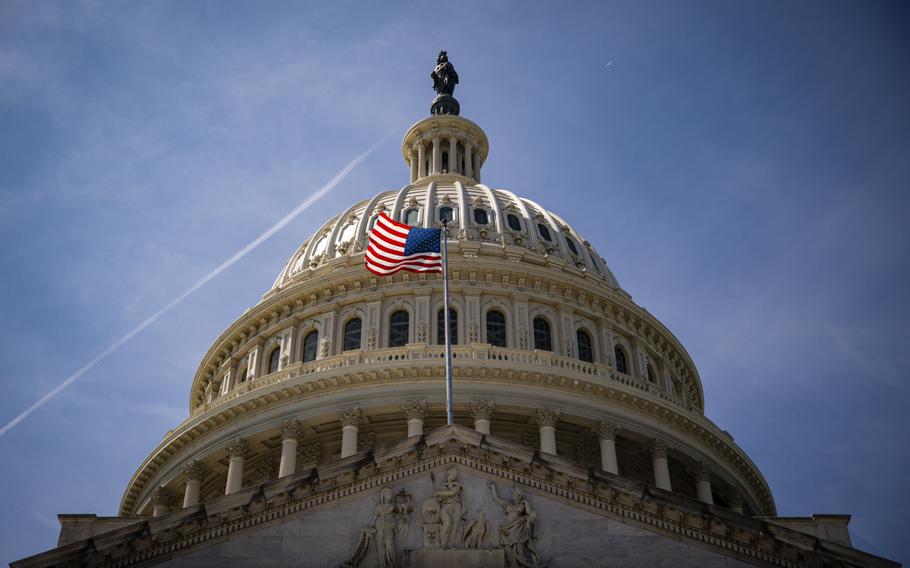
Moody’s Investors Service, the only remaining major credit grader to assign the U.S. a top rating, has signaled that its confidence is wavering ahead of a potential government shutdown. (Al Drago/Bloomberg)
Moody’s Investors Service, the only remaining major credit grader to assign the U.S. a top rating, has signaled that its confidence is wavering ahead of a potential government shutdown.
While “debt service payments would not be impacted and a short-lived shutdown would be unlikely to disrupt the economy, it would underscore the weakness of U.S. institutional and governance strength relative to other Aaa-rated sovereigns,” analysts led by William Foster wrote in a report Monday.
The analysts stopped short of threatening a downgrade, but used unusually blunt language to express their concerns over the trajectory of congressional negotiations to pass a short-term spending bill required to stop a government shutdown when the new U.S. fiscal year begins in October.
“A government shutdown would demonstrate the significant constraints that intensifying political polarization continue to put on U.S. fiscal policymaking during a period of declining fiscal strength, driven by persistent fiscal deficits and deteriorating debt affordability,” Moody’s added.
Markets have been on watch for further credit actions after Fitch Ratings downgraded the U.S. back in August, citing concerns about political wrangling over the debt ceiling that took the nation to the brink of a default. Moody’s latest report — which leaves its rating of the U.S. unchanged — is a sign that U.S. debt sustainability and the politics around it will continue to be a theme through the remainder of the year.
Thus far Congress shows no sign of being able to avoid a shutdown on Oct. 1.
House Speaker Kevin McCarthy has been unwilling to work with Democrats on temporary funding to keep the government open, partly out of concern of being ousted by hard-liners in his own party.
Those hard-liners have repeatedly said they don’t fear the consequences of a shutdown, and the Moody’s warning isn’t likely to move the group.
A band of Republicans from swing districts, who are most vulnerable to voter backlash over an interruption of government services, already are making preparations for a rebellion to cut short a shutdown. But because of procedural obstacles, the group can’t act quickly enough to stop it.
Treasury yields remained up on the day in the wake of Moody’s report with 10-year yields earlier reaching their highest since 2007.
“The pressure on the U.S. debt affordability front is building,” Foster said in an interview after the release of the report.
“Weaker fiscal policymaking” that results in “persistently high fiscal deficits and higher than expected interest costs” will ultimately weigh on the U.S.’s credit grade, he added.
His comments echo those from all three major credit graders in recent years.
S&P Global Ratings, the first major credit grader to strip the U.S. of its AAA rating back in 2011, said in March that it could again lower the U.S.’s rating “over the next two to three years if unexpected negative political developments weigh on the strength of American institutions and the effectiveness of long-term policymaking or jeopardize the dollar’s status as the world’s leading reserve currency.”
Moody’s said the shutdown’s effect “would be concentrated in areas with a large government presence” and depend on the length of the closure.
Bloomberg’s Erik Wasson contributed to this report.